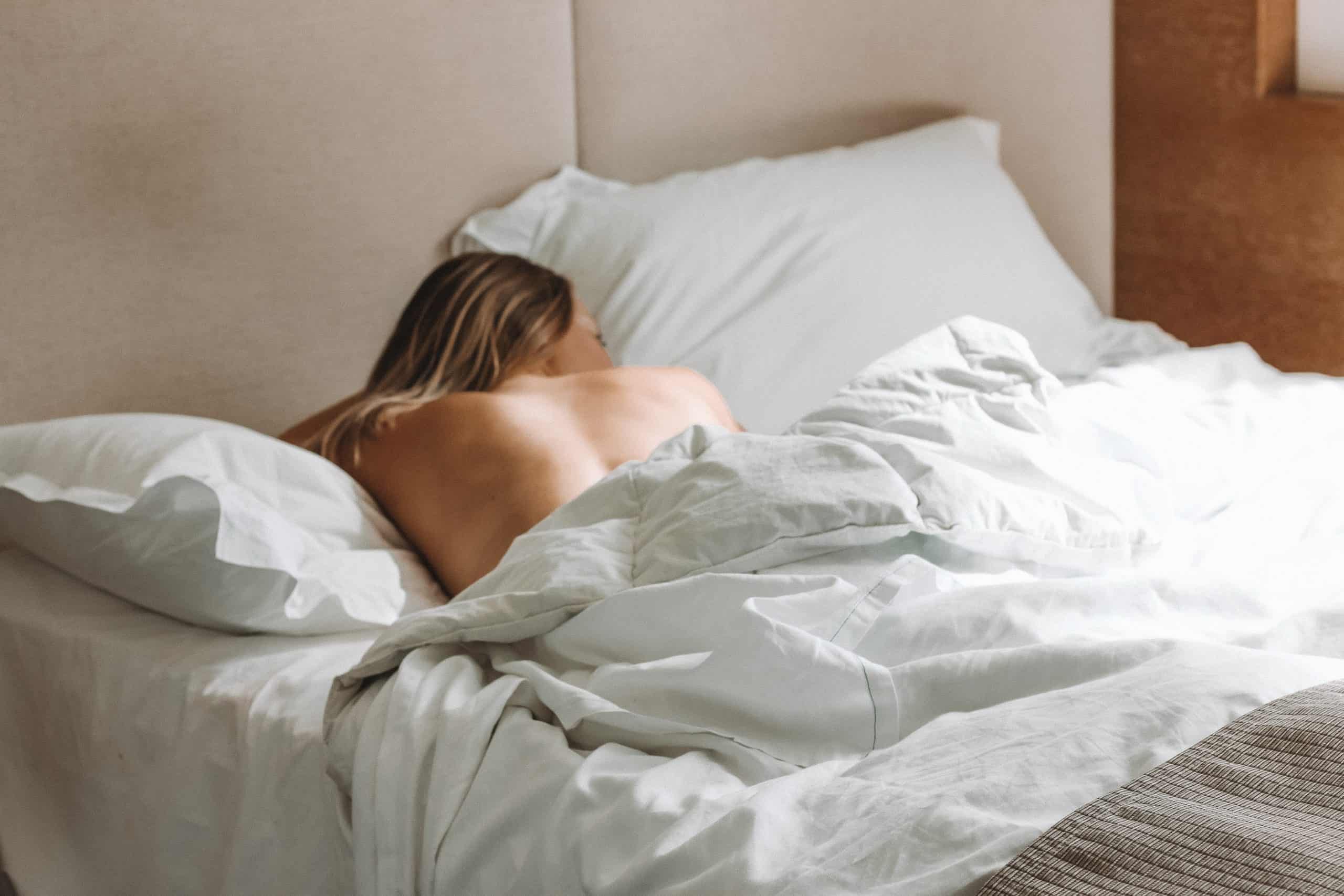If you wake up in the mornings drenched in sweat on a regular basis, you’re not alone. About 3 percent of the U.S. population suffers from excessive sweating—known as hyperhidrosis—which can result in night sweats. Most of the time, nighttime sweating is caused by something small, nothing serious. However, excessive sweating during the night is sometimes a sign of a real medical problem. Here are a few of the common causes of night sweats.
1. Your body is fighting an internal battle.
Infections can cause a spike in body temperature. When you get hotter, you sweat. So a brush with infection can totally cause night sweats. Your immune system’s response to the presence of a virus or bacteria is to eliminate it. Your body tries to kill these intruders by raising your body temperature, resulting in a fever. Of course, another natural response that comes along with a fever is sweating.  Tuberculosis is the most common infection that causes actual night sweat symptoms. Night sweats can also be the symptom of more serious infections, like HIV, infections of the heart valves (endocarditis), or inflammation of the bones (osteomyelitis). But don’t freak out just yet. There are lots of less alarming reasons people sweat at night.
Tuberculosis is the most common infection that causes actual night sweat symptoms. Night sweats can also be the symptom of more serious infections, like HIV, infections of the heart valves (endocarditis), or inflammation of the bones (osteomyelitis). But don’t freak out just yet. There are lots of less alarming reasons people sweat at night.
2. Rx Side Effects
Prescription medication can also cause night sweats. The biggest over-the-counter culprit is antidepressants. One in 10 U.S. adults takes an antidepressant, and 22 percent of those people experiences medication-induced night sweats. ortunately, there are ways to adjust prescription levels to alleviate this problem. So talk to your doctor.
3. Dip in Blood Sugar
During the night, your body requires less energy to function than during the daytime. With lower energy needs, the liver produces less glucose.  Sometimes a person’s glucose level can drop too low (hypoglycemia), resulting in restless sleep, headaches, nightmares, and night sweats. People with diabetes experience nighttime hypoglycemia the most, but it can happen to anyone.
Sometimes a person’s glucose level can drop too low (hypoglycemia), resulting in restless sleep, headaches, nightmares, and night sweats. People with diabetes experience nighttime hypoglycemia the most, but it can happen to anyone.
4. GERD
Gastroesophageal reflux disease, or GERD, is caused when stomach acid regularly bubbles up into the esophagus—something most people call heartburn. The acid reflux can create a burning sensation in the stomach, chest, and throat. It can also can cause bad breath, nausea, vomiting, and—you guessed it—night sweats.  Occasional heartburn isn’t anything to worry about, but multiple instances a week for several weeks in a row is the sign of a problem that usually requires medical attention.
Occasional heartburn isn’t anything to worry about, but multiple instances a week for several weeks in a row is the sign of a problem that usually requires medical attention.
5. You need to chill out.
Stress can really affect the way our body functions. Anxiety, fear, depression, or feeling overwhelmed can all lead to the release of cortisol, a stress hormone, in the body. High levels of this hormone can disrupt your sleep pattern, resulting in nightmares and even night sweats.  Managing stress is crucial to a healthy life. Exercising, eating well, and, for some, incorporation of medications or supplements will help balance out hormone levels and get your sleep schedule back on track.
Managing stress is crucial to a healthy life. Exercising, eating well, and, for some, incorporation of medications or supplements will help balance out hormone levels and get your sleep schedule back on track.
6. Changes With Time
One of the most common causes of night sweats, for women at least, is a natural hormonal change. During menopause or perimenopause, estrogen levels begin to fluctuate and cause hot flashes. These hot flashes are described as a sudden rush of heat felt in the chest, face, and head. Up to 80 percent of menopausal women experience hot flashes, and these symptoms can last for seven to 11 years. The flashes can occur at any time, even while a woman is asleep.  Don’t panic just yet if you’ve had a few sweaty nights. You only need to consult with a healthcare professional if any of these symptoms happen on a regular basis for an extended period. You can always try modifying your environment before contacting a doctor. Switch out your comforter for a lighter blanket, make sure your pajamas are light and breathable, and set the air conditioning around 68 degrees to create the most comfortable sleeping situation. If you still have night sweats after these changes, make an appointment to talk to your doctor.
Don’t panic just yet if you’ve had a few sweaty nights. You only need to consult with a healthcare professional if any of these symptoms happen on a regular basis for an extended period. You can always try modifying your environment before contacting a doctor. Switch out your comforter for a lighter blanket, make sure your pajamas are light and breathable, and set the air conditioning around 68 degrees to create the most comfortable sleeping situation. If you still have night sweats after these changes, make an appointment to talk to your doctor.



